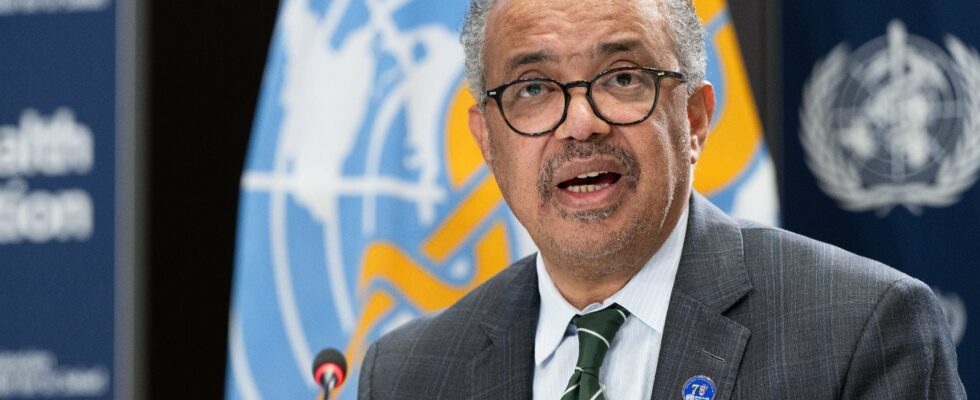After two years of efforts, negotiations to develop a treaty on the prevention and fight against pandemics ended this Friday, May 24 without an agreement, although countries have expressed the wish to continue pushing to succeed one day. “Since you have done your best, there should be no regrets,” WHO Director-General Dr Tedros Adhanom Ghebreyesus told delegates. But, he said, “it’s not a failure.” “What matters now is what we learn from this experience and how we can reset things, recalibrate things, identify the main challenges and move forward. That’s what matters,” he said. he insisted, because “the world still needs a treaty on pandemics”.
Negotiations were extended several times. “We have not arrived where we hoped to go”, namely finding an agreement, indicated the co-chairman of the group in charge of the negotiations (Intergovernmental Negotiating Body, INB), Roland Driece. This group will have to report on its work before the World Health Assembly, the supreme body of the WHO which includes 194 countries, which meets from May 27 to June 1. “We really hope that the World Health Assembly will make the right decisions to move this process forward… and that we will have an agreement on the pandemic, because we need it,” stressed Roland Driece. “It is clearly a pause. Most member states want to continue and consolidate the gains,” an Asian diplomat participating in the negotiations told AFP, on condition of anonymity. “People need time to adjust their positions. The big question is what will it take for the North and South to converge. It takes time,” he added.
He was not the only one to make this call. “Have we reached a good text today? No” but “we want to continue the process, we really want this text”, declared an African delegate to AFP, on condition of anonymity. American Ambassador Pamela Hamamoto said she was “happy that we have the draft text which reflects the work we have accomplished together”.
“Perhaps too ambitious”
The prevention and fight against pandemics have become even more major challenges since the human and economic catastrophe that was Covid-19, due to lack of preparation, coordination and solidarity. A group of countries have been working on a general response framework for more than two years, but despite progress in recent weeks, several obstacles seemed difficult to overcome. The main stumbling block is the creation of a “multilateral access and benefit-sharing system for pathogens with pandemic potential” (PABS) led by the WHO.
Developing countries are reluctant to share their pathogens without a guarantee of vaccines and other health products in return. Financing such a plan, particularly for poor countries, is another sensitive point, as is the equitable distribution of screening tests, treatments and vaccines but also the means to produce them.
Negotiators had the option of presenting the AMS with an agreement in principle, with the hope of convincing it to give more time to the process. In a preliminary version dated Thursday that AFP was able to consult, large portions of the text were already approved. Ellen’t Hoen, lawyer for the NGO Medicines Law & Policy, deplores the fact that the real debates on the choice of terms only began at the end of the discussions. The completion in two years of this treaty, “which can still become the most quickly negotiated treaty”, “was perhaps too ambitious”, she said.
